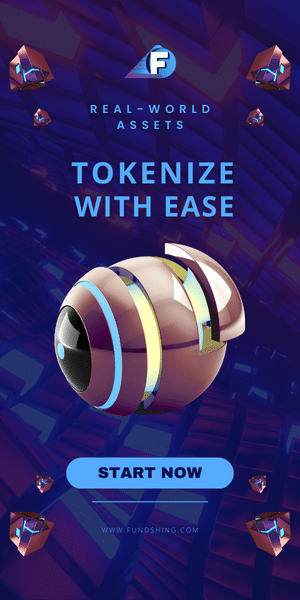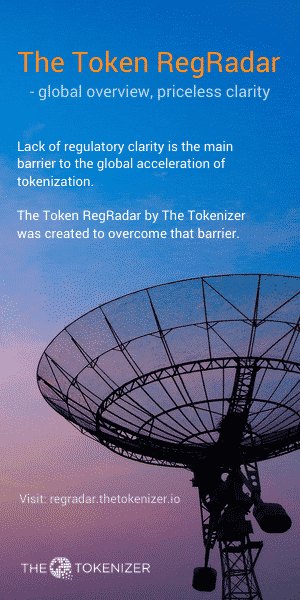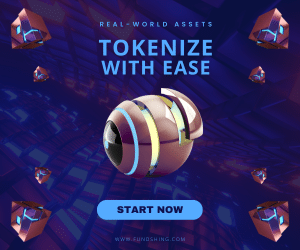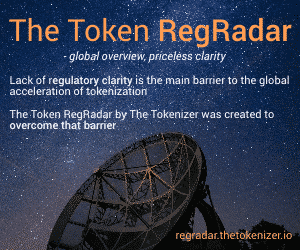My nine-year-old daughter lost a good friend this Christmas. His name was Cousin BR (Fætter BR). If only his parents could have tokenized him instead of selling him off to a private equity firm that stuffed him to death with debt and didn’t know how to play the toy industry. RIP, toy friend, Cousin BR. But how can tokenization be an alternative to leveraged buyouts by private equity firms for future toy cousins?
Cousin BR was the brand mascot for the leading Danish retail chain of toy shops. BR was founded in 1950 by Børge Rasmussen (BR) and his wife, Edith. They started with just one modest shop in the Danish provincial town Roskilde. Inspired by retail trends from the US they decided to focus on toys. In 1978 BR had 18 shops in Denmark, and in 2018 this number had grown to 193 shops in six countries. Until 2015 BR was still owned by the family who started the business, but that year they decided to sell off 75% of BR (now part of Top-Toy) to the Swedish Private Equity Firm EQT for around 228 million Euro.

Fast forward to Christmas three years later, the best month of the year for any Western toyshop, and the new majority owners of BR send out a press release announcing that unfortunately the company had to file for bankruptcy. Less than a month later all shops are now closed and all employees have lost their jobs.
Well, how could this happen? And in a period where the Danish economy is as strong as ever? There are undoubtedly many possible answers, and several of them point to new trends and patterns in the toy market and the way children today play, and how BR was slow to understand and react. Other explanations could be about lack of efficiency of processes in the company and increasing competition from new e-commerce.
These explanations probably all have some truth to them, but I would like to highlight another one: The downswing that eventually sent BR into bankruptcy started right after the company had been acquired by EQT, which is interesting, because what happens when a private equity firm takes over a company? Well, the price paid for the company – in this case, 228 million Euros – becomes debt. But watch out, a magic trick is about to happen: The newly created debt for buying the company suddenly becomes the company’s own debt, not the debt of the private equity firm, in this case, EQT. What this leveraged buyout entailed for BR was that from one day to the next the company owed 228 million Euro probably to a group of banks from whom EQT had raised the money for the acquisition.
But is owing money a problem for a company? What if the private equity firm in return helps the company to become much more efficient and profitable? Well, it doesn’t necessarily have to be a problem, but in many cases, it turns out to be so, and BR is a brilliant example. Apparently EQT was not able to do much good for BR, and because of the new massive debt, BR did not have the reserves to live through a difficult period and invest in whatever would have been necessary to modernise and upgrade the company for the demands of a changing toy market and new playing habits among modern children.
When an investment made by a private equity firm fails, they are often quick to kill the unhealthy patient instead of spending money for a more extended period trying to find a cure. And that was the end of my daughter’s good friend, Cousin BR!
Tokenization as an alternative solution
Now, what does this have to do with tokenization? Well, the thing is that if the BR family had decided to sell their life’s work, not in 2015 but 2025, it is likely that private equity tokenization would have been an attractive alternative to EQT and other private equity firms.
The BR family could have decided to sell the company not to one buyer – in this case EQT – but to thousands of buyers simultaneously. They could have tokenized their company or just at part of it and sold it off via global crypto exchanges in the form of security tokens to investors of all sizes and potentially from all over the world. It is even very likely this option will be a reality long before 2025.
The tokenization space is evolving extremely fast, and the main barriers are not that much of technical nature, but more about legal challenges, developing of practical procedures, improving user experiences and testing solutions. In the future tokenizing your company or parts of it should be as easy as selling off to a private equity firm, and currently, new companies with new tokenization services are popping up on a weekly basis.
Another important question, though, is how to compensate for the loss of the skills, expertise and experience for further development of the company that a private equity firm brings to the table? Well, if we take BR as an example once again, the problem turned out the be that, apparently, EQT didn’t have that much to offer when it came to necessary skills. At least it didn’t help much since BR went bankrupt. And in the case of raising money via tokenization, an entire industry of consultants is about to evolve who will offer to assist the company in organising their tokenization journey.
And by not weighing down on the company’s economic room to manoeuvre by filling it with debt, it will be able to use some of the funds raised through the tokenization process to implement, for instance, change management projects to further progress and accommodate the company if needed.
Democratising investments
Another aspect of tokenization as an alternative solution to a leveraged buyout is the sympathetic democratisation of investments. Tokenization makes it possible also for smaller retail investors to participate and get a share of the action. Today leveraged buyouts by private equity firms are a game for the very few, and there is no way that you would ever mistake what private equity firms do with any democratic event, activity or process. Daniel Frumkin from Invest In Blockchain writes in an article:
“Swarm and other tokenization projects aren’t guaranteed to succeed in democratising finance. But with high-efficiency peer-to-peer models that consistently outperform monopoly-based models over time, there has never been a solution with this much potential to disrupt the private equity sector.”Daniel Frumkin, Invest In Blockchain
But
why care about tokenization if an owner like the BR family just wants to cash
out quickly and leave? Well, if that really is what they want, there is no need
to care. But families like the BR family who sell off their life’s work
typically don’t think like that. They find it disturbing if the company that
they have founded many years ago and built up through hard work gets into
troubles shortly after their leaving it, which precisely was what happened to
my daughter’s good toy friend, Cousin BR.
More Articles:
Standard Tokenization Protocol (STP) Network is Launching STP 2.0 on Polkadot
You Might also Like
























